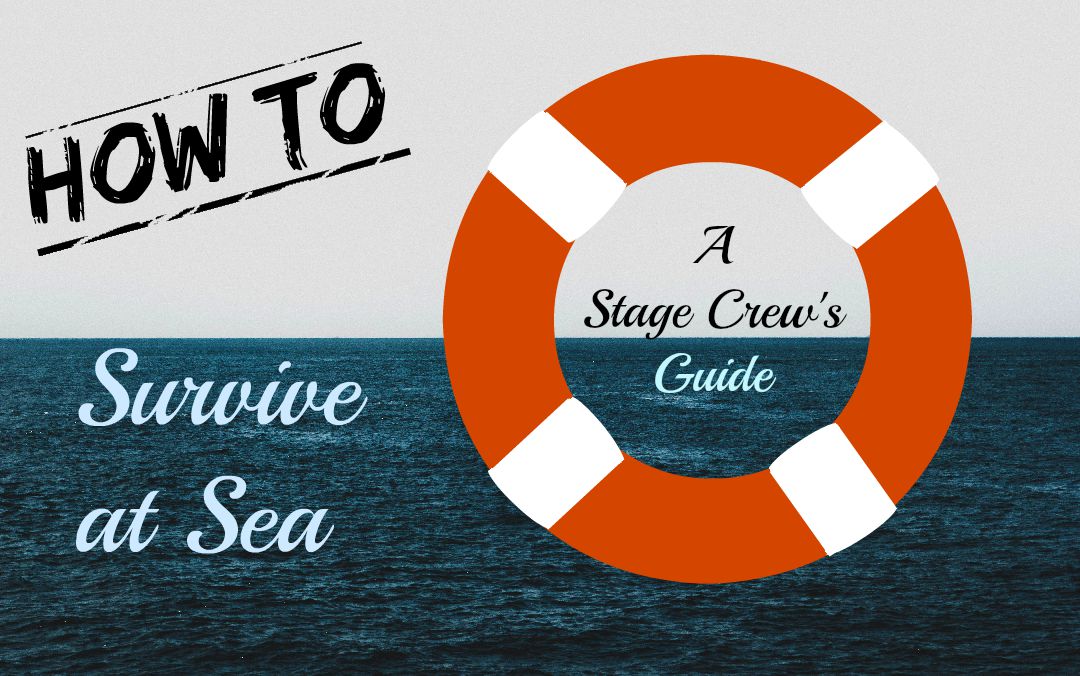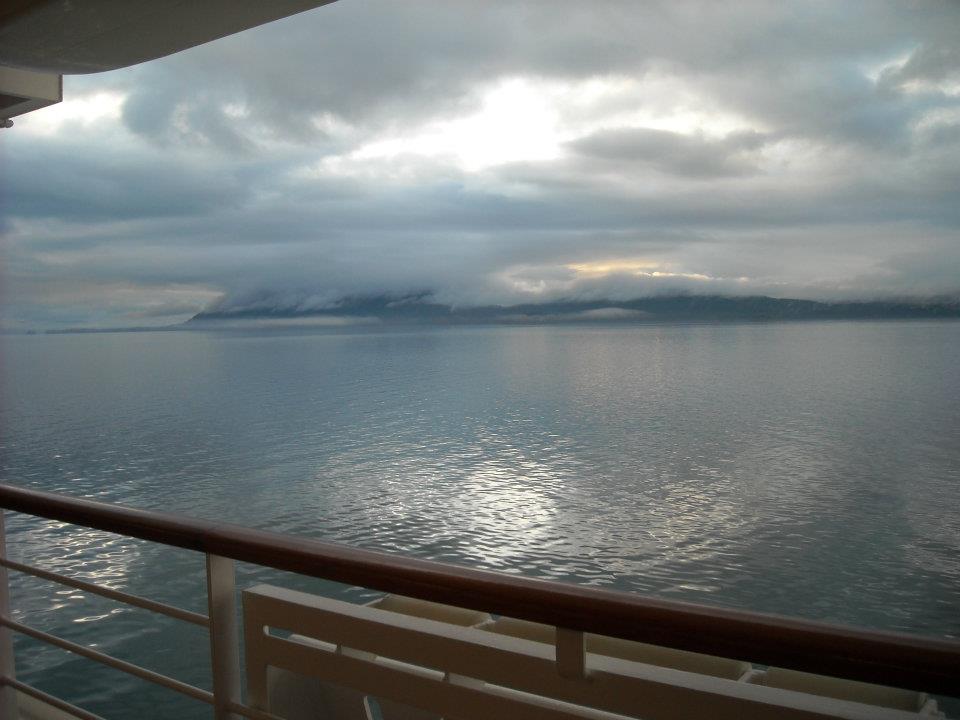 Welcome to the series How to Survive at Sea: A stage crew’s guide. Click here for the first post in the series.
Welcome to the series How to Survive at Sea: A stage crew’s guide. Click here for the first post in the series.
There are many ways to find oneself at sea, most of which require some form of survival. You might be a shipwreck victim, adrift on a plank of half-rotten wood; or a sailor who traverses the world on a luxury yacht. Or, like me, you might be working as a stage hand on a luxury cruise ship sailing up and down the coast, from Alaska to Mexico and on to Hawaii. No matter what brings you to the sea, there will be challenges and dangers that you will need to be prepared to survive. (Admittedly, dysentery and starvation are a little more challenging than running out of Seltzer water somewhere on the East Pacific, but we each have our own cross to bear). By the time you finish this guide, you will be fully equipped to deal with… actually, you’ll only be equipped to deal with the whole cruise ship scenario thing. I don’t know anything about being a shipwreck victim adrift on a plank of half-rotten wood. Let’s face it, our safety drills were good, but most of them assumed you would actually make it into the life raft. Look, the point I’m trying to make is that there’s a reason this guide is subtitled A Stage Crew’s Guide, okay? Truth in advertising.
Now, if we can get on with it? Thank you. You will likely find yourself reading this guide for one of three reasons:
1) You are at sea. If this is the case, I’m afraid to say that your ti me management skills leave something to be desired. Most of us read a book like this before embarking (literally. see what I did there?) on our journey. Nevertheless, you should be applauded for your taste, and all is not lost. You’ve probably made a terrible impression as a “landlubber,” or “newbie,” but you can correct this mistake with hard work. Make sure to pay special attention to the section on foodstuffs, and the glossary that follows.
me management skills leave something to be desired. Most of us read a book like this before embarking (literally. see what I did there?) on our journey. Nevertheless, you should be applauded for your taste, and all is not lost. You’ve probably made a terrible impression as a “landlubber,” or “newbie,” but you can correct this mistake with hard work. Make sure to pay special attention to the section on foodstuffs, and the glossary that follows.
2) You are considering a life at sea. Far from the group in the first option, you are a forward thinking individual. You have planned, prepped, and want to go into the situation fully informed. To you, I say: reality check. You will never be prepared. You will never be ready. It will never go as you expect it to. You might as well close this informational and enjoyable guide right now, wrap yourself in bubble-wrap, and live out the rest of your life in a home for the clinically afraid.
3) You know someone at sea. In most cases, gentle readers, you know me, the author and self-titled Stage Crew who brings you this advice about surviving at sea. You may ask what makes me qualified to write such a tract, and as evidence I give you this: I am alive. I am also at sea (or at least I was at the time of the original writing of this guide. Even better, I have now returned to land, and get this: I am still alive!)
4) There is, technically, a fourth reason. You are bored. In which case, having read this, you are already no longer bored, and have just ceased to exist. Hence, there are only three reasons.
I set off on my own maritime ad venture a year after graduating from university. I was working, as so many liberal arts majors do, in retail. Basically I hated my life. An escape seemed like utter bliss, and what better way to escape than to leave everything I had ever known and set out on the silver tipped waves?
venture a year after graduating from university. I was working, as so many liberal arts majors do, in retail. Basically I hated my life. An escape seemed like utter bliss, and what better way to escape than to leave everything I had ever known and set out on the silver tipped waves?
There’s something primal about the open seas that has called to humans since – well, probably since we climbed out of it in the first place. Just picture a person standing on the deck of a ship, the sails furled above them, face tilted into the wind. Titantic may have ended badly, but the moment we all remember most is the titular character cutting through the waves as the inane rich girl stood on her bow and laughed, “Look, Jack! I’m flying!” And whether you were a teenaged girl when that movie came out and loved every second of it, or whether you were anyone else and pretended to hate it while secretly loving every second of it, you probably thought, “Man, that looks fun.”
I have always been at home on the water. I only get seasick on truly choppy waves, and when I was a kid I used to stand on the bow of every boat I set two feet on and exult in the feel of the spray on my face. I also had a theatre degree that was going nowhere (thanks to the union Equity for trying to put its apprentices in more debt than their university degrees already had), so what better fit than doing theatre on a boat? It couldn’t get any better, right?
Right?
Come back next week for a glossary of terms you might need to understand what the heck I’m on about.
What’s up, I read your blog regularly. Your writing style
is witty, keep up the good work!